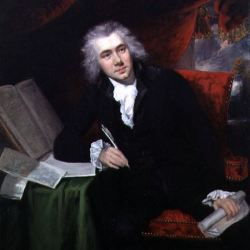When combined, science and religion can be a powerful force for good. Let's use it to vanquish COVID.
One of the greatest things about the Church -- and religion in general -- is its ability to inspire positive social change. When a devoted group of people is convicted by their beliefs and morals to achieve a goal, they often work tirelessly until it's accomplished.
It is for this reason that American churches (and again, all religious faiths) should make it a top priority to convince their congregations to get vaccinated against the coronavirus. Writing for the Journal of Public Health, professor Jose Ma Gopez makes precisely this case for the Philippines.
Mr. Gopez noted that Pope Francis and Pope Benedict XVI both received their COVID jabs publicly, and this act inspired bishops within his country. He writes:
"Filipino bishops are willing to be vaccinated in public and even before the television if the act will help establish confidence in the government’s vaccine campaign in allaying the public’s fear of vaccination. The movement of the Filipino bishops is to encourage the people especially the poorest of the poor in the society to get vaccinated."
How the Church Can Build Public Trust in Vaccines
Being publicly vaccinated is probably the best possible way to convince others to receive their own shots. Leading by example is powerful. But it's not the only way. The Church can build public trust in vaccines in at least three more ways.
First, it should remind people that "loving thy neighbor" isn't an abstract, theoretical concept. Instead, it is meant to be put into practice. And one way to love your neighbor is to care for them when they are sick, or in this case, to prevent them from getting sick in the first place. This forms the moral and even theological argument for wearing a mask and getting a vaccine.
Second, churches could open their doors and serve as mass vaccination centers (assuming public health laws would allow it). Many churches already provide homeless shelters, food banks, and other community services, so becoming a vaccination site is aligned with the goal of serving the neighborhood.
Third, it would be helpful if clergy became a little familiar with how vaccines work so that they can be prepared to answer any objections from congregants. For instance, the mRNA vaccines made by Pfizer/BioNTech and Moderna are safe and effective. They cannot cause COVID. They are extremely unlikely to provoke a serious adverse reaction. (In other words, the risk posed by COVID is far greater than the risk posed by the vaccine.) They do not alter your DNA. They do not cause Alzheimer's. And they are manufactured ethically.
When combined, science and religion can be a powerful force for good. Let's use it to vanquish COVID.

